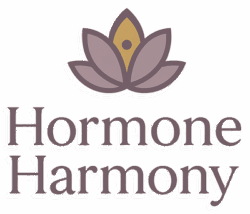In Vitro Approaches for Anti-TSLP Biotherapeutics Development and Immune Cell Modulation Strategies Explained
Thymic stromal lymphopoietin (TSLP) is a cytokine that plays a crucial role in the initiation and progression of various immune-related diseases, including asthma, atopic dermatitis, and allergic rhinitis. TSLP exerts its effects by binding to its receptor complex, which is expressed on a variety of immune and non-immune cells, including dendritic cells (DCs), mast cells, macrophages, basophils, T cells, and epithelial cells.
The Role of TSLP in Immune Cell Modulation
TSLP is known to modulate the function of immune cells, promoting the development of a Th2 response and inhibiting the development of a Th1 response. This leads to the production of IgE antibodies and the activation of eosinophils, which are key players in allergic inflammation. The TSLP receptor complex is composed of the TSLP receptor (TSLPR) and the interleukin-7 receptor alpha subunit (IL-7Rα). This receptor complex is expressed on a variety of immune and non-immune cells, including dendritic cells (DCs), mast cells, macrophages, basophils, T cells, and epithelial cells.
In Vitro Approaches for Anti-TSLP Biotherapeutics Development
The development of anti-TSLP biotherapeutics has gained significant attention in recent years, with several approaches being explored. In vitro approaches have emerged as a valuable tool for the development of anti-TSLP biotherapeutics, allowing for the rapid screening of potential therapeutic agents and the evaluation of their efficacy and safety.
Cell-Based Assays for TSLP Neutralization
Cell-based assays have been widely used to evaluate the efficacy of anti-TSLP biotherapeutics. These assays typically involve the use of cells that express the TSLP receptor complex, such as dendritic cells or mast cells. The cells are stimulated with TSLP, and the effects of the anti-TSLP biotherapeutic on TSLP-induced signaling and cellular responses are evaluated.
- TSLP-induced cytokine production: Anti-TSLP biotherapeutics can be evaluated for their ability to inhibit TSLP-induced cytokine production, including the production of Th2 cytokines such as IL-4, IL-5, and IL-13.
- TSLP-induced cell proliferation: Anti-TSLP biotherapeutics can be evaluated for their ability to inhibit TSLP-induced cell proliferation, including the proliferation of dendritic cells and mast cells.
- TSLP-induced signaling: Anti-TSLP biotherapeutics can be evaluated for their ability to inhibit TSLP-induced signaling, including the activation of downstream signaling molecules such as STAT5 and ERK.
Immune Cell Modulation Strategies
Immune cell modulation strategies have emerged as a promising approach for the treatment of immune-related diseases. These strategies involve the modulation of immune cell function, either by inhibiting or enhancing the activity of specific immune cells. Anti-TSLP biotherapeutics have been shown to modulate the function of immune cells, including:
- Dendritic cells: Anti-TSLP biotherapeutics have been shown to inhibit the maturation and activation of dendritic cells, leading to a reduction in Th2 cytokine production and a decrease in allergic inflammation.
- Mast cells: Anti-TSLP biotherapeutics have been shown to inhibit the activation of mast cells, leading to a reduction in the release of histamine and other inflammatory mediators.
- T cells: Anti-TSLP biotherapeutics have been shown to modulate the function of T cells, including the inhibition of Th2 cytokine production and the promotion of Th1 cytokine production.
Conclusion
In conclusion, in vitro approaches have emerged as a valuable tool for the development of anti-TSLP biotherapeutics and the evaluation of immune cell modulation strategies. These approaches have allowed for the rapid screening of potential therapeutic agents and the evaluation of their efficacy and safety. Further research is needed to fully elucidate the mechanisms of action of anti-TSLP biotherapeutics and to explore their potential therapeutic applications. For more information on in vitro strategies for developing anti-TSLP biotherapeutics, visit News-Medical.



